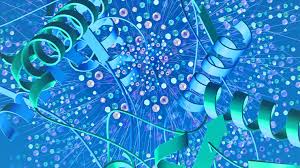Proteomics is the large-scale study of proteins, especially proteins’ structures and functions. And proteome is the entire set of proteins, which can be produced or modified by an organism or system. As for proteomics experiments, there are three kinds of related services about proteomics we are going to recommend to you as your reference.
They are silac proteomics, aqua proteomics and post translational modification glycosylation.
As a recognized innovative technology, SILAC-based quantitative proteomics (SILAQ) is widely used in high throughput quantitative analysis of large protein complexes, protein-small molecule interactions and protein-protein interaction. Besides, this technology is also a sensitive and effective method to determine the specific interaction partners of proteins in the cell. As the great impact of quantitative proteomics is increased rapidly in life science research, stable isotope labeling by amino acids in cell culture (SILAC) is an indispensable technique for relative quantification of proteins, for it is a simple and straightforward approach for in vivo incorporation of a label into proteins for MS-based quantitative proteomics.
AQUA proteomics
Absolute quantification, a target quantitative proteomics technique, can exhibit robust efficacy and be widely applied for a variety of quantitative proteomics studies. AQUA proteomics strategy is acting on the absolute quantification of proteins and their modification states. During the synthesis of peptides, incorporated stable isotopes are used as ideal internal standards to mimic native peptides formed by proteolysis, which then can be prepared with covalent modifications. This kind of AQUA internal standard peptides is then used to precisely and quantitatively measure the absolute levels of proteins and post-translationally modified proteins.
Post translational modification glycosylation
Believed as the attachment of sugar moieties to proteins, glycosylation is a post-translational modification, which can provide greater proteomic siversity than other PTMs. Protein glycosylation is significant for a wide range of biological processes, such as cell attachment to the extracellular matrix and protein-ligand interactions in the cell. Glycosylation is characterized by all kinds of glycosidic linkages, including N-, O- and C-linked glycosylation, phosphoglycosylation and glypiation.
These three services related proteomics fields are widely applied by scientists and other research personnels. A majority of biotech companies also will highly recommend these to your project if necessary.

